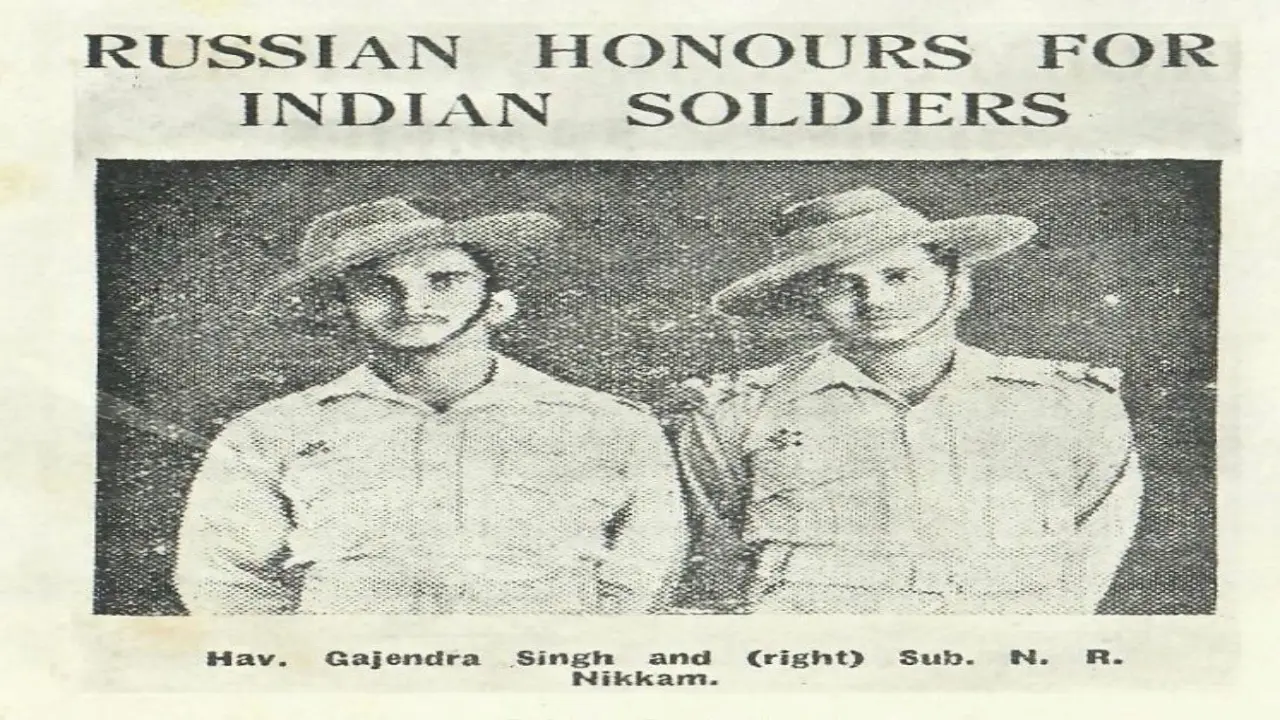Victory Day: Russia commemorates Indian soldiers who supported Soviet Army

With more than two and a half million Indians recruited into the Army during the war years, India sent the largest volunteer army in the world to the battle fronts of the West and East | India News
As Russia celebrates Victory Day, marking 80years since the surrender of Nazi Germany in World War 2, Russian Missions in India are commemorating India's forgotten heroes, who supported the Soviet Red Army's gallant struggle against the Nazis. Among these forgotten heroes are two Indian soldiers- Subedar Narayan Rao Nikkam and Havildar Gajendra Singh- who were conferred the Soviet Order of the Red Star, an honour meant to recognize exceptional service in the cause of the defense of the Soviet Union.
With more than two and a half million Indians recruited into the Army during the war years, India sent the largest volunteer army in the world to the battle fronts of the West and East. Indian troops fought in European, African, Asian theatres of WW2. As per Soviet archives, Indian and Soviet army men met on the battle fronts, in the rear or in fascist concentration camps. "The Order of the Red Star was presented to Subedar Narayan Rao Nikkam, village Nerala Hathi, Tehsil Kankanhalli, District Bangalore; and Havildar Gajendra Singh, of village Baraloo, Tehsil Shor, District Alrnora, who were serving in General Purpose Transport Companies of the Royal Indian Army Supply Corps," Soviet records from 1944 show.
Archives show that Indian troops supplying war supplies to Soviet forces at the Caucasus front travelled an arduous and dangerous route. "The 3,000 mile long road to the Caucasus, across burning desert and barren land, through 7,000 feet high mountain passes and low river beds passed through places where the temperatures varied from 130°F(54 degrees celcius) to freezing temperatures. They formed the vital supply link between India and the Soviet Union. From Peshwar to Tabriz, on the Iran Soviet border, this road was “India’s outstretched hand to Russia, bringing it vast resources to within a week’s road journey of Russia’s outlier frontier.”
Speaking at the Victory Day event at the Russian House in Chennai, Consul General Valerii Khodzhaev mentioned that the occasion is not just about the Victory, but about the tragedy of the last world war which had a human cost of 78million lives. "Victory Day is not only a celebration, but also the time when we remember the great feats of the whole generation that passed through tremendous sufferings and demonstrated great heroism and glory. All in all, the Soviet Red Army succeeded in grinding 607 out of 780 Nazi divisions(about 80%), thus playing a decisive role in defeating fascism in its den."
The immortal Battle of Moscow, Leningrad blockade, Siege of Sevastopol, Stalingrad and Kursk battles, Battle of Berlin became the manifestations and synonyms of infinite perseverance, immense courage and sacrifice of the soldiers and people of Russia and the USSR. That war left a raw wound in our hearts and souls and there was virtually no family in the former USSR that did not lose its members or close ones. 27million Soviet people, including civilians and military personnel died in that global conflict. The root cause of that global conflict was the supremacist ideology formulated and implemented by the German Nazi leaders who concluded that the German nation was above others, entitled to rule the world, Khodzhaev recalled.
Further, he said that Western elites have been consciously wiping off or twisting memory of the outcome of World War 2 and the great feat of the Soviet people. Once again, we see the glorification of Nazism and racism, cancelling Russian culture, language, education, and even people, in a pattern reminiscent from colonial times, he added. Khodzhaev also drew attention to the connection between the World War 2 Victory and the emergence of the multipolar world order with new centers of power and influence, including rising India and rebounding Russia, both standing for a more equal and just interstate relations.
)
&im=FitAndFill=(700,400))
)
)
)
&im=FitAndFill=(700,400))
)
)
&im=FitAndFill=(700,400))
)
&im=FitAndFill=(700,400))
&im=FitAndFill=(700,400))
&im=FitAndFill=(700,400))
)